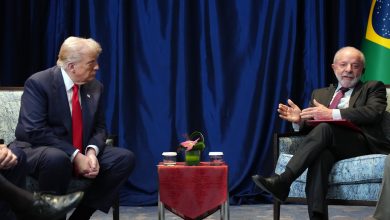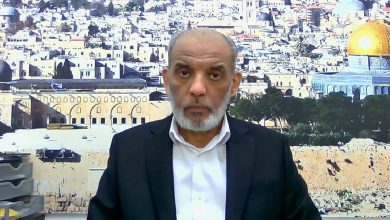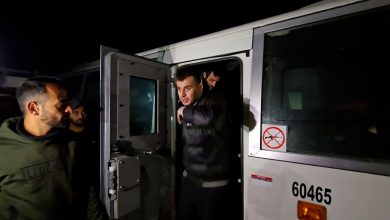Gaza continues to grapple with a severe humanitarian crisis despite a ceasefire agreement brokered weeks ago, with aid deliveries remaining woefully insufficient and hampered by political constraints, according to Doctors Without Borders (MSF) and local authorities. MSF has directly accused Israel of weaponizing humanitarian assistance, while the Gaza Municipality reports that the continued denial of essential machinery is crippling their ability to provide basic services.
Caroline Willmann, MSF’s project coordinator in Gaza, stated in an interview that the humanitarian situation has seen minimal improvement since the ceasefire took effect. Critical shortages of water and shelter persist, leaving hundreds of thousands of residents living in makeshift tents as winter approaches. “The humanitarian assistance to the Gaza Strip should not be linked to any political conditions,” Willmann emphasized, highlighting the urgent need for unconditional aid. She noted that MSF teams are still documenting severe malnutrition cases among children under five and pregnant women, pointing to a precarious food security situation despite marginal improvements in aid delivery. The provision of routine healthcare services remains exceedingly challenging.
“Palestinians in Gaza have been living under the terror of genocide for two years,” Willmann declared. “We urgently need assistance just to ensure people can sleep on a mattress and under a blanket inside their tents. Rebuilding Gaza will take a long time, but we haven’t even reached the minimum basic humanitarian conditions in the Strip.” Her stark assessment underscores the depth of the crisis and the long road to recovery.
Yahya al-Sarraj, the Mayor of Gaza, echoed these concerns, stressing that the inability to import essential machinery is severely hindering the municipality’s operations. He stated that at least 250 vehicles are urgently needed to enhance municipal services. Furthermore, Gaza requires an estimated 1,000 tons of cement to repair and maintain vital water infrastructure, including wells and the water distribution network. While municipal work continues, it is operating at a limited capacity due to resource constraints.
The United Nations Children’s Fund (UNICEF) has also voiced concerns that despite observing an increase in aid entering Gaza, the overall volume remains insufficient to address the overwhelming needs. UNICEF has called on Israel to immediately open all crossings into Gaza to facilitate the entry of humanitarian assistance. The organization is expanding its operations within the Strip and is “racing against time to save children’s lives from threats.”
“Words and numbers alone cannot convey the magnitude of the impact on children in Gaza, an impact that will last for generations,” UNICEF warned. The organization estimates that one million children in Gaza have endured the daily horrors of survival in what they term the most dangerous place in the world. Tragically, over 64,000 children have been killed or injured in the conflict, and more than 58,000 have lost at least one parent.
UNICEF is actively scaling up its efforts to treat malnutrition in response to the looming threat of famine in Gaza. The organization’s presence and interventions are crucial to mitigating the worst effects of the crisis on the most vulnerable population.
For more information about Palestine, check our dedicated section.
The current ceasefire in Gaza was brokered in Sharm el-Sheikh, Egypt, on October 9th, through mediation efforts involving Qatar, Egypt, Turkey, and the United States, after two years of intense Israeli military operations. However, despite the agreement, reports indicate that Israel has continued to conduct sporadic airstrikes and artillery shelling within Gaza. Critically, the restrictions on aid entering the territory have not been fully lifted. The Rafah crossing between Gaza and Egypt remains largely closed, with aid trucks reportedly waiting on the Egyptian side, unable to deliver their much-needed cargo.
The accusations leveled against Israel by MSF highlight a disturbing trend of politicizing humanitarian aid in conflict zones. The deliberate obstruction or manipulation of aid deliveries as a tool of warfare is a violation of international humanitarian law and further exacerbates the suffering of civilians. The call for unconditional humanitarian assistance underscores the importance of upholding ethical principles and ensuring that aid reaches those in need, regardless of political considerations.
The situation in Gaza demands a comprehensive and sustained response from the international community. Increased aid deliveries, facilitated by the opening of all border crossings, are essential to address the immediate needs of the population. Furthermore, long-term reconstruction and development efforts are necessary to rebuild infrastructure, restore livelihoods, and create a sustainable future for the people of Gaza.
The international community must also hold accountable those responsible for violations of international humanitarian law, including the weaponization of aid. Impunity for such actions only perpetuates the cycle of violence and suffering. A commitment to justice and accountability is crucial to achieving a lasting peace in the region.
DZWatch will continue to monitor the situation in Gaza and report on the efforts to alleviate the humanitarian crisis. We urge our readers to support organizations providing aid to the people of Gaza and to advocate for a just and lasting solution to the conflict.



